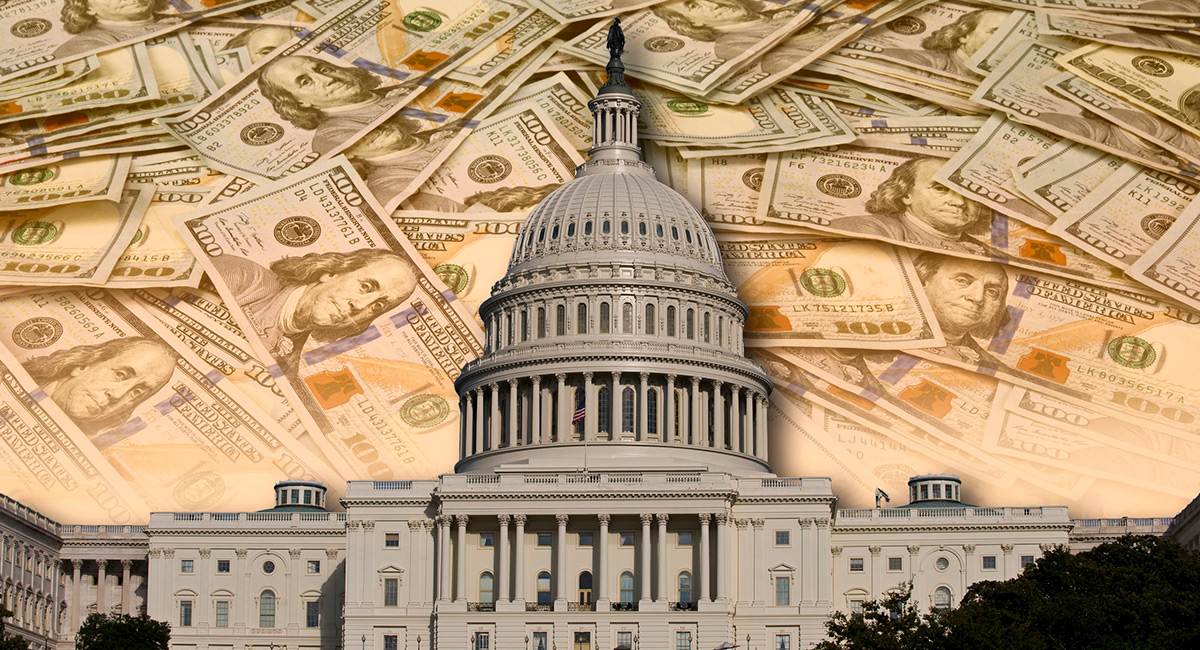Republicans and Democrats are debating what to include in yet another federal coronavirus relief bill. Meanwhile, the states are in various stages of “opened up” or “locked down,” with state and local politicians regulating the minutiae of our interactions right down to what constitutes a “meal” in order to determine which establishments may serve alcoholic beverages.
The politicians all need to stop. Just stop.
Senate Republicans have proposed a new $1 trillion dollar spending plan. Democratic House Speaker Nancy Pelosi (D-Calif.) wants a $3 trillion bill. Neither plan would stimulate our economy in the short run, but both would make the economy worse in the long run.
The U.S. economy is stagnating because of COVID-19 and the state and local shutdown and limited-reopening restrictions.
In a sense, some of this stagnation is optimal, given the existence of COVID-19. It poses a health risk to all Americans and a more significant risk to older people and people with preexisting conditions. Economic activities that consumers perceived as most risky were going to contract in the short run even without any government prohibitions.
What would you expect with fewer people willing to travel, go to restaurants and gyms, or attend sporting events and concerts? This stagnation will cure itself in the longer run, however, as labor and capital are reallocated from these industries to other industries, or as risk from COVID-19 decreases—whether from a vaccine, treatment, or herd immunity.
However, much of the economic stagnation was imposed by the government. New unemployment claims surged to record levels in late March and early April as most state governments across the country imposed lockdowns. The unemployment rate, which peaked in April at 14.7 percent, began falling in May and June (11.1 percent) as many states began easing their shutdown restrictions and allowing some people to go back to work.
More people would have gone back to work if Congress had not included a $600 weekly boost to state unemployment benefits with the $2 trillion COVID-19-relief bill it passed in March. That bill raised the combined federal and state unemployment benefits above the average wage of the jobs lost in 38 states.
Paying people more not to work than to work is a sure-fire way to prolong economic stagnation. Unfortunately, House Democrats are trying to extend this provision until January in their new proposal.
A new federal COVID-19 bill would not stimulate the economy because the vast majority of the spending in both the Republican and Democratic versions would not and/or could not address the two fundamental causes of our economic stagnation.
If most of the new spending were on speeding the development of a vaccine, improved treatments, or increased hospital capacity, one might plausibly argue that the spending could decrease the drag on the economy caused by the risk of COVID-19. But neither plan focuses on measures like these.
Federal spending also couldn’t negate orders from state and local officials that prevent people from working and consuming goods and services. Perhaps an “anti-spending” bill could pressure states to decrease their restrictions by taking away federal funds from those that do not abolish their lockdown orders. But, again, that’s not being proposed.
Either bill would be bad for the economy in the long run because, at $1 trillion to $3 trillion, either would significantly add to the $3.8 trillion federal deficit forecast for 2020. Ultimately, accumulated deficits are paid for with higher taxes in the future. Those higher taxes will contract long-run economic activity.
The federal government should stop passing relief bills because more spending would likely harm our economic recovery more than help it. State and local government busybodies need to stop regulating how businesses and consumers cooperate so that people can figure out how to do it themselves. Our economy would improve more quickly if we could just get all of our politicians to stop what they’ve been doing.












